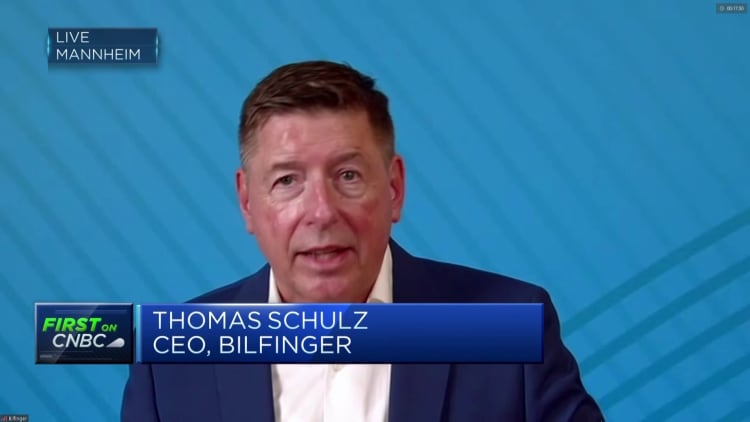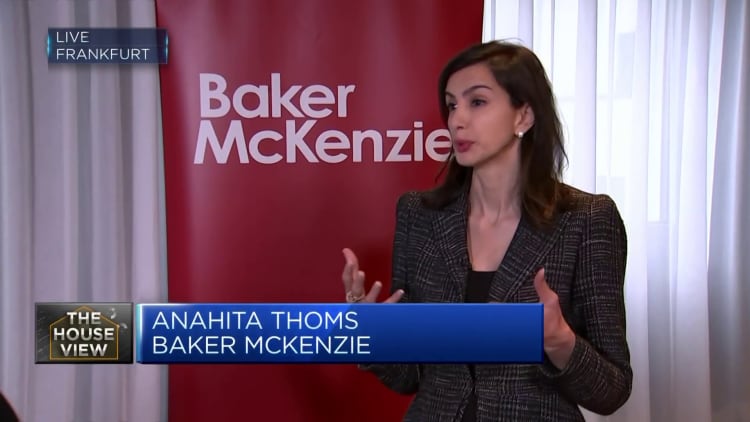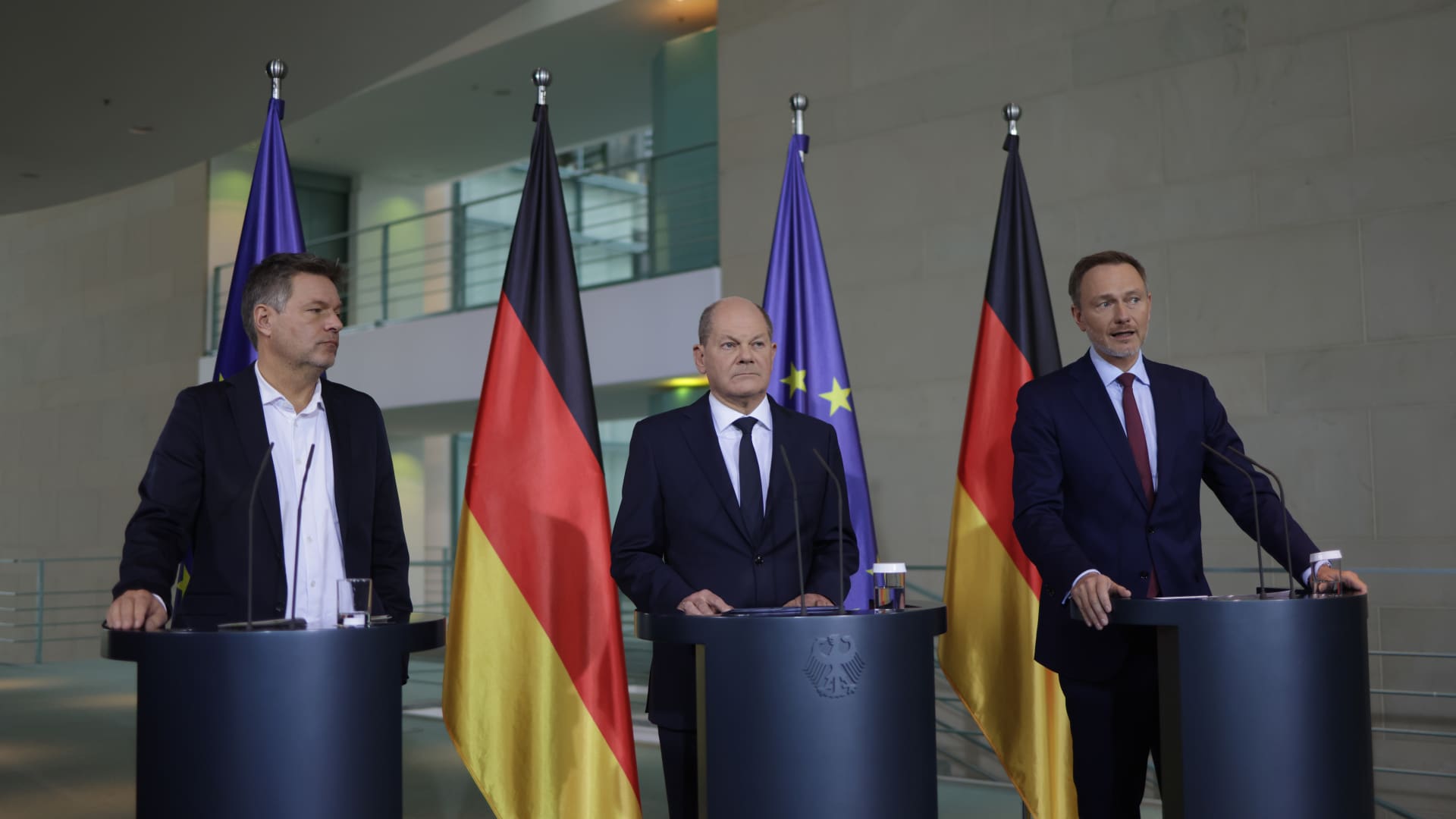German Chancellor Olaf Scholz (C), Finance Minister Christian Lindner (R) and Economy Minister Robert Habeck give statements to the media following the weekly government cabinet meeting on November 15, 2023 in Berlin, Germany.
Sean Gallup | Getty Images News | Getty Images
Germany’s budget is in trouble.
Last week, the constitutional court ruled that it was unlawful to re-allocate unused debt originally designated for emergency Covid-19 pandemic funding to current spending plans.
This week, the finance ministry froze spending across all ministries.
But that could be just the tip of the iceberg as financial woes could lead to political ones, and even potentially endanger the future of Berlin’s coalition government.
Germany didn’t get to this point overnight, however — in ways, the roots of the current crisis even predate the pandemic. And that is because of Germany’s so-called debt brake.
A long time in the making
Enacted in 2009, the debt brake limits how much debt the government can take on, and dictates the maximum size of the federal government’s structural budget deficit. The rules say it can be no bigger than 0.35 percent of Germany’s annual GDP.
Since the global financial crisis, the debt brake has been the cornerstone of German fiscal policy.

But then, the Covid-19 pandemic happened. The government took on emergency debt to try to stem the impact the pandemic had on its budget through a temporary debt brake suspension.
As it turned out, the extra funding wasn’t actually needed. And so, the current coalition government decided to re-allocate it to finance policies aimed at climate change and a greener, more sustainable economy.
Constitutional or not?
Germany’s opposition was not happy about the re-allocation and eventually took the matter to Germany’s constitutional court. Last week, the verdict came in and, in a blow to the government, the court confirmed that the emergency funding was not allowed to be used for policy plans unrelated to the pandemic.
The government appeared somewhat unprepared for this verdict and was left fumbling for answers when questioned by colleagues and the press.
Some observers (and several Green party members), have suggested that the climate crisis is as much of an emergency as the pandemic. But the court’s ruling stands, and Germany’s budget now has a 60-billion-euro ($65 billion) hole.
The government has since scrambled to figure out its financial plans, and earlier this week German media reported that the finance ministry had more or less shut down the possibility of any additional spending that hasn’t already been scheduled for 2023.
A divided coalition
A major factor in the government’s dilemma is the range of political positions the three coalition partners hold.
There’s the Greens, who were the key instigators behind the climate policy plans that are now at risk and are therefore heavily attached to its success. Then the SPD, the social democrats, who would be content with making the debt brake more lenient or increase taxes. And the FDP, the Free Democratic Party, who control the finance ministry and don’t want higher taxes or higher debt.

But a full break up of the government is unlikely, according to a research note published by Eurasia Group directors Jan Techau, Mujtaba Rahman and Jens Larsen.
“Government stability is not in question, and the coalition is still likely to complete its full term,” they said.
“All three parties would face devastating losses in the (unlikely) case of snap elections, diminishing their appetite for breaking out of the current arrangement. No obvious new majority is possible in the current parliament,” they said.
Any solutions?
Solutions are still few and far between, especially ones that can be applied in the immediate term, and the government is still working on plans to readjust spending and funding that coalition partners can agree on.
And in the long term?
“An obvious way out would be to change the constitution,” Berenberg Bank’s Chief Economist Holger Schmieding said in a note. This would require a new consensus with at least some of the opposition politicians needed to reach the required two-thirds majority, he explained, which would mean political deals and sacrifices on divisive topics such as asylum rules.
“For now, such a deal seems unlikely. But after the next election in September 2025, a (new) government that would once again need to include parts of the centre-right and centre-left may perhaps strike such a deal,” Schmieding said.
Reforming the debt brake after the next General Election is also one of the paths ahead that Citi economists Christian Schulz, Giada Giani and Benjamin Nabarro foresee. They also note that long-term changes to the way the German government is funded could be ahead.
“We expect the ruling to drive the government to build actual cash reserves in normal times as well as during emergencies, which would allow it to address long-term consequences of crises without breaching the debt break,” they wrote in a research note.
And finally, the bar for what constitutes an “emergency” (and therefore allows for a suspension of the debt brake) could be lowered — and eventually perhaps even include the climate crisis.

